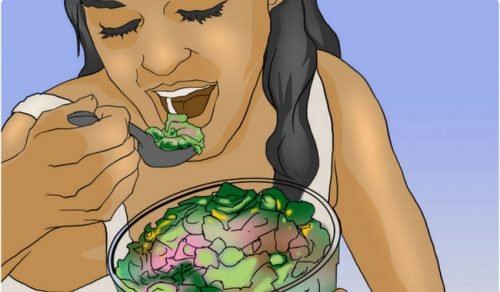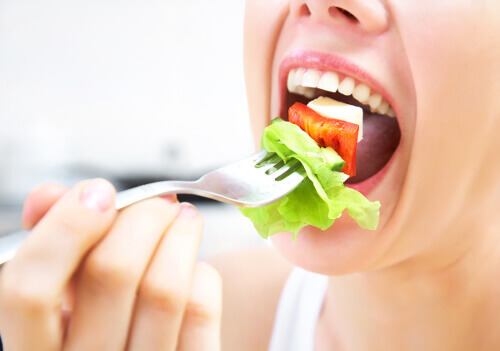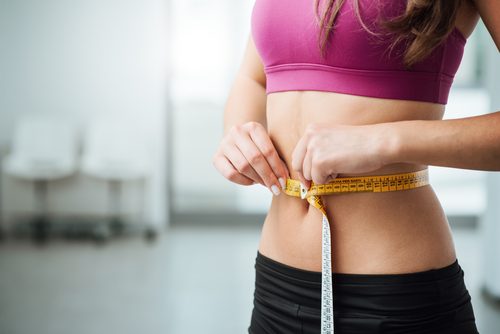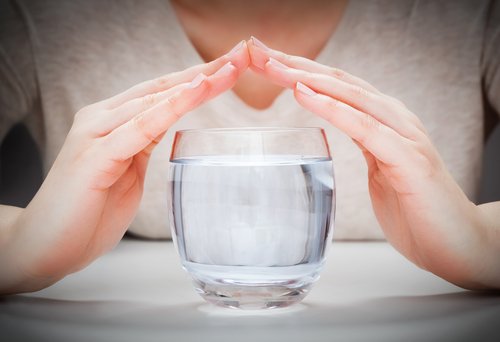How to Start a Diet: Tips to Remember


Reviewed and approved by the pedagogue in physical education and nutritionist Elisa Morales Lupayante
Do you want to start a diet that will truly be effective? Don’t miss out on these tips!
They can complement your healthy diet and make it a much more practical solution that your attempts in the past.
How to Start a Diet
1. Convince yourself to do it
You might not really believe you need to diet, but you’d like to lose some weight or at least feel better about yourself.
Remember that you’re only going to follow your diet if you’re truly convinced by it – this is one of the keys to success.
Keep in mind that you need to define the reasons why you decide to undertake this diet, and the best way to do that is to make a list of the pros and cons.
Read also: 4 signs of a lack of protein in your diet
2. Focus on the before and after

For this reason, it’s a good idea to take pictures. This will help you visualize your progressive weight loss and keep you motivated.
3. Clearly define your goals before starting a diet
It’s critical to be clear about what you want to achieve with your diet.
If you want to have stronger muscles, for example, you’ll need a diet that’s high in protein.
Of course, you can’t forget that the best way to keep from getting discouraged is to be realistic with your goals and always follow them in a healthy way.
4. Don’t always eat the same things

Dieting can be an excellent time to take advantage of new recipes that allow you to experiment with all kinds of fruits and vegetables, in addition to other products.
Unleash your imagination and look for healthy, low calorie recipes!
5. Be aware of the cheats you give yourself
You’ll have to be mindful of the times you allow yourself to lapse while you start a diet, otherwise you’ll wind up ruining the effects of all your efforts.
- Allow yourself to have a sweet in moderation or once a week. Pay attention to how much and how often you eat unhealthy foods.
6. Chew your food slowly

Your brain needs about 20 minutes to relay the signal that you’re full. If you eat faster, it means that you’ll consume more in less time – even to the point of overeating.
- Try to give yourself an additional 10 minutes to consume every meal.
- It’s important to eat without doing anything else so that you concentrate on your food and prevent the desire to consume anything else.
7. Don’t go shopping when you’re hungry
The worst thing you can do is to go grocery shopping when you’re hungry. You can fall into that trap of buying the first thing that sounds good to you, which is typically unhealthy.
Try to make a shopping list and always eat before you go. This will make you feel more relaxed and less tempted to cheat.
8. Remember that there’s no such thing as a miracle diet

Unfortunately, these don’t work in the medium or even long term because they cause you lose fluids and muscle mass. In fact, if you try following this kind of diet, it can cause you to gain more weight or damage your health.
9. Pay attention to breakfast
Breakfast should contain at least 20% of the calories you need for the entire day.
Remember that breakfast also provides you with energy for the rest of the day and should never be skipped.
Some recommended foods include:
- Dairy products (milk, yogurt, cheese, butter)
- Fruit
- Ham
- Cereals and grains
- Juice
- Coffee, tea, or hot chocolate
Visit this article: The best fat-fighting breakfasts
10. Don’t forget plenty of water

The recommended amount of water you should get a day is between 1.5 and 2 liters, consumed as plain water, teas, or even vegetable broth.
Remember that tea is an excellent antioxidant thanks to the flavonoids found in plants. That means it can really help you reduce stress and improve your concentration.
We hope you liked our article, for more information on how to start a diet click below!
All cited sources were thoroughly reviewed by our team to ensure their quality, reliability, currency, and validity. The bibliography of this article was considered reliable and of academic or scientific accuracy.
- Imagen principal cortesía de © wikiHow.com
-
Zaragozá Arnáez, F., & Lozano Estevan, M. (2018). Comparativa De Las Dietas Milagro Existentes En La Actualidad, Y Sus Efectos Negativos Sobre La Salud. Revista BIOCIENCIAS, 13(1), 1–24.
https://www.mendeley.com/catalogue/comparativa-las-dietas-milagro-existentes-en-la-actualidad-y-sus-efectos-negativos-sobre-la-salud/ -
Marqueta de Salas, M., Martín-Ramiro, J. J., Rodríguez Gómez, L., Enjuto Martínez, D., & Juárez Soto, J. J. (2016). Hábitos alimentarios y actividad física en relación con el sobrepeso y la obesidad en España. Revista Española de Nutrición Humana y Dietética, 20(3), 224.
https://doi.org/10.14306/renhyd.20.3.237 -
Sánchez, J. A., & Serra Majem, L. (2000). Importancia del desayuno en el rendimiento intelectual y en el estado nutricional de los escolares. Revista Española de Nutrición Comunitaria, 6(2), 53–95. https://doi.org/10.1016/j.physbeh.2014.11.024
-
Herrera, A. (2013). El Desayuno Y Su Importancia ¿Es Realmente El Desayuno Una Necesidad Fisiológica O Un Hábito Saludable? Revista Gastrohnup, 15(2), 20–27.
https://www.mendeley.com/catalogue/el-desayuno-y-su-importancia-es-realmente-el-desayuno-una-necesidad-fisiol%C3%B3gica-o-un-h%C3%A1bito-saludabl/ -
Rodrigo, P., & Granados, R. (2012). Agua:la importancia de una hiidratación adecuada. Scientific Opinion on Dietary, 3, 541.
https://www.mendeley.com/catalogue/aguala-importancia-una-hiidrataci%C3%B3n-adecuada/ - Dubowitz, T., Cohen, D. A., Huang, C. Y., Beckman, R. A., & Collins, R. L. (2015). Using a Grocery List Is Associated With a Healthier Diet and Lower BMI Among Very High-Risk Adults. Journal of nutrition education and behavior, 47(3), 259-64.
https://www.ncbi.nlm.nih.gov/pmc/articles/PMC4430323/
This text is provided for informational purposes only and does not replace consultation with a professional. If in doubt, consult your specialist.








